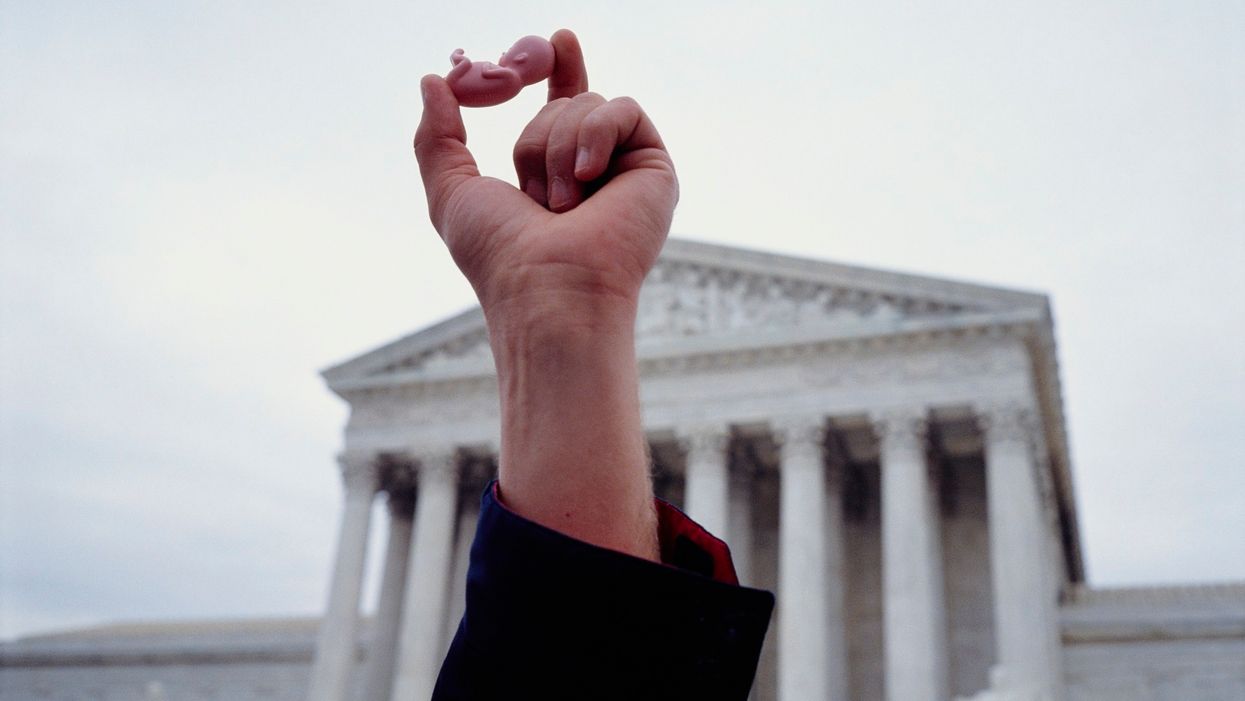
Ralf-Finn Hestoft/CORBIS/Corbis via Getty Images

The ACLU is leading the fight against the pro-life legislation
A federal judge on Friday temporarily blocked Kentucky's ban on aborting fetuses who have detectible heartbeats, just hours after Gov. Matt Bevin (R) signed it into law.
At 7:40 p.m., U.S. District Judge David Hale issued a temporary restraining order to prevent the state from enforcing Senate Bill 9, the so-called "fetal heartbeat" legislation, the Louisville Courier-Journal reported. Under the new law, it is illegal to terminate a pregnancy once a baby has a heartbeat, which occurs around six weeks' gestation.
The American Civil Liberties Union Reproductive Freedom Project sued to halt the law on behalf of the Kentucky's only abortion clinic, the EMW Women's Surgical Center. The health care provider canceled abortion appointments on Friday in compliance with the new law but resumed services by Saturday after Judge Hale's decision.
The judge ordered the law's enactment to be delayed for 14 days in order to allow him time to hold a hearing, citing the "strong likelihood of success" of the ACLU in arguing that the law is unconstitutional.
"The Supreme Court has stated in no uncertain terms that regardless of whether exceptions are made for particular circumstances, a state may not prohibit any woman from making the ultimate decision to terminate her pregnancy before viability," Hale wrote.
The ACLU estimates that if enacted, Kentucky's fetal heartbeat law would prohibit 90 percent of the abortions conducted in the state, the Huffington Post reported.
Brigitte Amiri of the ACLU told the New York Times, "We think this is a very straightforward legal issue. States can't ban abortion. It has been well settled over 40 years ago in Roe v. Wade."
Steve Pitt, general counsel to Gov. Bevin, told the Times that the judge's ruling wasn't unexpected "given the minimal amount of briefing that has occurred."
He added, "This case or others like it from other states will result in major changes in abortions in the U.S. in the near future. The ACLU, Planned Parenthood and others favoring unlimited abortions know this and are in a panic."
So far this year, several states have considered similar bills, including Tennessee, Georgia, and Mississippi. Iowa's fetal heartbeat law was declared unconstitutional by a court in January.
According to Reuters, activists on both sides of the abortion issue say such laws are aimed at triggering a challenge to Roe v. Wade.